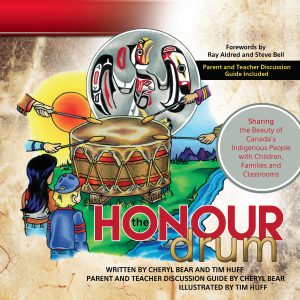 In my younger years, my family’s history in Canada sparked a feeling of pride. In the late 1700s, my father’s family settled in Upper Canada, and my mother’s family made its way to the West Coast where my great-grandmother caught a generation of babies as Fort Langley’s midwife. But these feelings have shifted uncomfortably as my awareness has grown of the fraught history between European settlers and Indigenous people.
In my younger years, my family’s history in Canada sparked a feeling of pride. In the late 1700s, my father’s family settled in Upper Canada, and my mother’s family made its way to the West Coast where my great-grandmother caught a generation of babies as Fort Langley’s midwife. But these feelings have shifted uncomfortably as my awareness has grown of the fraught history between European settlers and Indigenous people.
My father recently discovered a handwritten account in which my great-grandmother recollected a childhood interaction with Indigenous people in the late 1800s in rural Ontario: “….[They] pitched their tents on the lower end of our farm… They had braids and bands on their hair but were very civilized, never harmed anyone…” The account is complementary for its time, but I cannot help but notice the need to note that they were civilized despite their appearance. I also wonder how many generations of Indigenous people lived on that land before my great-grandmother referred to it as “our farm.”
As I share stories with my children about my family history, I want to honour my ancestors’ fortitude, character and contributions to society, but I also need to bring an awareness that my ancestors were beneficiaries – unwittingly or not – of unjust governmental policies and actions that have and continue to marginalize Indigenous people in Canada. By extension, both the benefits and injustices have trailed down through generations to the present time.
How do I hold these things in tension and make meaningful steps toward reconciliation?
As a parent walking this learning journey with my children, I was pleased to discover The Honour Drum by Cheryl Bear and Tim Huff.
Books aimed at children are often only useful for a short time, but The Honour Drum, visually rich and full of important questions, is adaptable to children of any age – and I daresay adults as well.
Bear is a celebrated singer, songwriter and storyteller from the Nadleh Whut’en First Nation in B.C., and Huff is a non-Indigenous author, illustrator and speaker from Toronto, with a passion for social justice. I was intrigued by their collaboration, which they describe as “two dear friends trying to live out and share authentic truth and walk out the journey of reconciliation.” It’s a journey I want to join.
The book’s discussion questions cleverly pry open my eyes to my own cultural expressions. Our ways of doing become our benchmark of “normal.” Particularly when we identify with the “dominant” culture, we’re in danger of becoming blind to the peculiarities of our own culture. This can lead to thinking of other cultures as strange at best, suspect at worst. Sadly, this cultural blindness and arrogance can be found even in our churches. Collectively and historically, we have been guilty of denigrating expressions of Indigenous culture within the church.
What I appreciate about the book is that it does not to simply recognize parallels between cultures. Finding similarities, though well-intentioned, Bear writes, “is not always very honouring… We have vast differences that should be acknowledged and even celebrated.”
Bear does not shy away from difficult truths about the disrespectful and hurtful ways in which Indigenous people have been treated in Canada, but she addresses them with gentleness and humility, while inspiring appreciation and curiosity to learn more about Indigenous cultures. “Typically, the history of Canada starts with the immigrant story,” she points out in the study guide. However, the Indigenous story “starts with Creator.” This view of history should resonate with Christians because Scripture begins with the Creator.
Article 12 of the MB Confession of Faith (“Society and State”) says: “Believers witness against corruption, discrimination, and injustice, exercise social responsibility….” Are we willing to do the hard work of coming to terms with our shared stories with Indigenous people in light of that commitment? Are we willing to confess how we have benefitted from policies and actions that have harmed the Indigenous people of Canada?
This calls for action on a personal level, and to hold our leaders to account, in regard to past events and present realities. How did we respond when a Canadian senator expresses regret that accounts of Residential Schools don’t “focus on the good”? What is our response when an Indigenous community declares a state of emergency because so many teens are committing suicide?
As followers of Christ, we have a moral responsibility to be peacemakers, yet our reply to injustice is often to swoop in with projects, programs and pomp, failing to see the paternalism in our well-intentioned actions. We need to sit a while, and really listen. We need to listen to what our Indigenous brothers and sisters are teaching us, and learn from them.
As The Honour Drum so beautifully says: “In many ways, we are all still trying to learn to walk together in a good way, as neighbours. Listening and learning with humility and understanding are vital to finding that way forward.”
[Andrea Heinrichs is a member of Eagle Ridge Bible Fellowship, Port Coquitlam, B.C. She and Dave have two children.